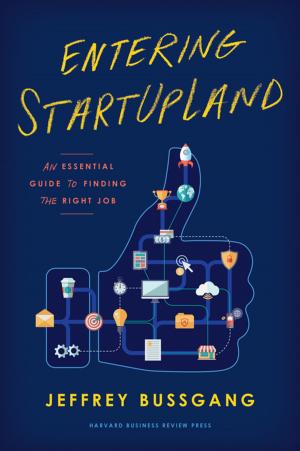Millennial Engagement in the Workplace: Finding Common Ground to Bridge The Multi-Generational Gap
Business & Finance, Human Resources & Personnel Management| Author: | Mark Caner | ISBN: | 9780988816510 |
| Publisher: | Mark Caner | Publication: | December 28, 2012 |
| Imprint: | Smashwords Edition | Language: | English |
| Author: | Mark Caner |
| ISBN: | 9780988816510 |
| Publisher: | Mark Caner |
| Publication: | December 28, 2012 |
| Imprint: | Smashwords Edition |
| Language: | English |
For the first time in U.S. history, workplace demographics now span four distinct generations. Consequently, generational conflict is one of the last bastions of acceptable discrimination in today’s workplace. In order to create a truly collaborative workplace, organizational leaders must encourage associates to view generational differences as a valuable strength, rather than a weakness. Hence, the intent of this manuscript is to empower organizations to find common ground in order to bridge the multi-generational workforce gaps that permeate.
This book will predominately focus on engaging with the newest generation in the workplace…the Millennials. At the onset, this research will provide a portrait of Millennials, which will include their modus operandi in the workplace. Once Millennials are understood, strategies and best practices are developed to address a multitude of issues that exist within the workplace. This process will include dispelling myths that pervade and setting the record straight about facts versus fiction. In addition, it will explore Millennial language, particularly jargon and vernacular which is commonly used in the workplace. Moreover, this research will examine the significance of technology, the emergence of social media, and the importance of education for this “digital native” generation.
From a strategic leadership perspective, this manuscript will continue seeking ways to bridge the multi-generational gap in the workplace by exploring how to align their ethical values and develop more collaborative relationships between these distinct cohorts. Similarly, it examine how to motivate and cultivate loyalty among the Millennial associates within the workplace. Lastly, it will discern various organizational leadership styles that are effective and conducive for Millennials. Ultimately, the purpose of this research is to equip organizations to lead a multi-generational workforce.
For the first time in U.S. history, workplace demographics now span four distinct generations. Consequently, generational conflict is one of the last bastions of acceptable discrimination in today’s workplace. In order to create a truly collaborative workplace, organizational leaders must encourage associates to view generational differences as a valuable strength, rather than a weakness. Hence, the intent of this manuscript is to empower organizations to find common ground in order to bridge the multi-generational workforce gaps that permeate.
This book will predominately focus on engaging with the newest generation in the workplace…the Millennials. At the onset, this research will provide a portrait of Millennials, which will include their modus operandi in the workplace. Once Millennials are understood, strategies and best practices are developed to address a multitude of issues that exist within the workplace. This process will include dispelling myths that pervade and setting the record straight about facts versus fiction. In addition, it will explore Millennial language, particularly jargon and vernacular which is commonly used in the workplace. Moreover, this research will examine the significance of technology, the emergence of social media, and the importance of education for this “digital native” generation.
From a strategic leadership perspective, this manuscript will continue seeking ways to bridge the multi-generational gap in the workplace by exploring how to align their ethical values and develop more collaborative relationships between these distinct cohorts. Similarly, it examine how to motivate and cultivate loyalty among the Millennial associates within the workplace. Lastly, it will discern various organizational leadership styles that are effective and conducive for Millennials. Ultimately, the purpose of this research is to equip organizations to lead a multi-generational workforce.















